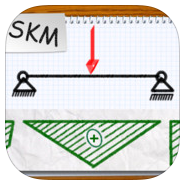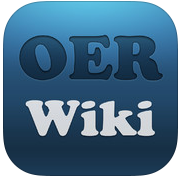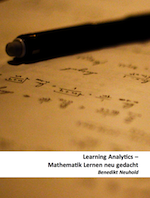Für das uni.webradio durfte ich ein Interview zum Projekt L3T 2.0 geben – kurz erklären was und wozu wir etwas gemacht haben. Was dabei herausgekommen ist, kann hier nachgehört werden.
[publication] Das Schulbuch – überhaupt noch zeitgemäß?
Im neuen OCG-Journal (3/2013) ist ein kurzer Artikel von Sandra und mir zu der Problematik der Schulbücher von morgen. Wie immer versuchen wir es von vielen Seiten zu sehen und vielleicht ein komplexes Thema neu und anders zu denken. Was in der Zukunft passiert haben wir zwar nicht in der Hand, aber vielleicht gelingt es so Impulse zu geben.
Aus dem Artikel:
Wer heute an ein Schulbuch denkt, hat ein farbig gedrucktes Buch mit zahlreichen Abbildungen vor Augen. Schon Schulanfänger haben manchmal so viele davon in der Schultasche, dass diese oft sehr schwer ist. Die Inhalte, ihre Reihenfolge und die Aufgabenstellungen der Schulbücher sind dabei in aller Regel maßgeblich für die alltägliche Unterrichtsgestaltung: Schulbücher sind damit auch der „geheime Lehrplan“ im Schulalltag.
Zitation: Ebner, M; Schön, S. (2013) Das Schulbuch – überhaupt noch zeitgemäß? OCG Journal, 3/2013, 38. Jahrgang, S. 18-19
[iPhone] AddSubTrainer
 Ab sofort ist auch die iPhone App für den PlusMinus-Trainer online verfügbar. Nach der Webapplikation und der Android-App kann der Trainer jetzt auch am iPhone verwendet werden:
Ab sofort ist auch die iPhone App für den PlusMinus-Trainer online verfügbar. Nach der Webapplikation und der Android-App kann der Trainer jetzt auch am iPhone verwendet werden:
Die App beinhaltet ein webbasiertes Trainingssystem für das du ein Konto benötigst. Dein Lernfortschritt wird online gespeichert, und du bekommst immer auf dich zugeschnittene Rechenaufgaben.
Weiters gibt es einen Übungsmodus der in unterschiedlichen Schwierigkeitsstufen anonym durchführbar ist, und dem Zwecke der Verbesserung der Rechenfähigkeiten des Benutzers dient.
Ein Account kann bei https://mathe.tugraz.at angelegt werden.
[workshop] Digital Natives – lernen Sie anders?
Im Rahmen der 3. Fachkonferenz der Bildungsberatung in Wien bin ich gebeten worden einen Workshop zu halten rund um das Thema „Zukunft des Lernens“.
Hier gibt es einmal die Folien und ich bin gespannt auf die Ergebnisse vor Ort:
Klicken Sie auf den unteren Button, um den Inhalt von www.slideshare.net zu laden.
[iPhone App] Schnittkraftmeister Update
 Das erfolgreiche Lernspiel zum Üben von Schnittkraftlinien, genannt Schnittkraftmeister, ist ab sofort in der Version 1.3 online im Appstore verfügbar. Im Detail erfolgten folgende Änderungen:
Das erfolgreiche Lernspiel zum Üben von Schnittkraftlinien, genannt Schnittkraftmeister, ist ab sofort in der Version 1.3 online im Appstore verfügbar. Im Detail erfolgten folgende Änderungen:
- Kompatibel mit iOS 7
- Viele neue Beispiele
- In den ersten beiden Levels werden Hinweise zu gemachten Fehlern angezeigt
- Verbesserte Hilfe
- Kleine Veränderungen an der Benutzeroberfläche
[Android] OER Wiki
 Nach der iOS-App gibt es die App nun auch im Google Play Store für Android-Geräte. Die App ist sozusagen mit der iOS-App deckungsgleich und hat die gleichen Funktionen:
Nach der iOS-App gibt es die App nun auch im Google Play Store für Android-Geräte. Die App ist sozusagen mit der iOS-App deckungsgleich und hat die gleichen Funktionen:
OER Wiki allows You to search multiple Wikis for Information with just one click.
Explore new Open Educational Resources.
Search more than a dozen predefined Wikis simultaneously.
Read great articles with the integrated Reader.
Add new Wikis easily.Features:
- Select Wikis,
- Add Wikis,
- Bookmarks,
- Sharing,
- Random-Articles,
- Articles-Browsing,
- License-Guide
[eBook] Learning Analytics: Mathematik Lernen neu gedacht
 Der 4. Band der ITuG-Reihe über „Learning Analytics: Mathematik Lernen neu gedacht“ ist ab sofort auch als E-Book verfügbar. Viel Spaß beim Lesen und wir freuen uns auf viele BenutzerInnen bei https://mathe.tugraz.at.
Der 4. Band der ITuG-Reihe über „Learning Analytics: Mathematik Lernen neu gedacht“ ist ab sofort auch als E-Book verfügbar. Viel Spaß beim Lesen und wir freuen uns auf viele BenutzerInnen bei https://mathe.tugraz.at.
[publication] How Useful Is Twitter for Learning in Massive Communities? An Analysis of Two MOOCs
We are feeling very honored that our contribution „How Useful Is Twitter for Learning in Massive Communities? An Analysis of Two MOOCs“ is part of the book Twitter & Society.
Abstract:
In this chapter we concentrate on an analysis of Twitter usage surrounding a German-language MOOC that could indicate future trends in technology-enhanced learning. Our research focuses on the Twitter stream accompanying the course and ask how Twitter is used and for what purposes by the heavy twitter users, by the educators / organisers / guestspeakers in the course and if tweets from “outside” get into to the stream.
How Useful Is Twitter for Learning in Massive Communities? An Analysis of Two MOOCs by Martin
Klicken Sie auf den unteren Button, um den Inhalt von www.scribd.com zu laden.
Reference: van Treeck, T., Ebner, M. (2013) How Useful Is Twitter for Learning in Massive Communities? An Analysis of Two MOOCs. In: Twitter & Society, Weller, K., Bruns, A., Burgess, J., Mahrt, M., Puschmann, C. (eds.), Peter Lang, p. 411-424
[publication] @twitter analysis of #edmediaXX– is the #informationstream usable for the #mass
Our book chapter about „@twitter analysis of #edmediaXX– is the #informationstream usable for the #mass“ is now online available. Enjoy the reading.
Abstract:
In this paper we report the use of an application that enables an automatic analyses of social media content. In this early stage of development our work focuses on data from Twitter1 as currently to be the most popular and fastest growing microblogging platform. After an introduction about a general concept the conference tweets of a big e-learning conference are examined twice. It is aimed to show whether there is a possibility to get significant information from a pool of postings or not. The publication concludes that a keyword extraction can be taken as basis for further investigations and treatment of data.
@twitter analysis of #edmediaXX– is the #informationstream usable for the #mass by Martin
Klicken Sie auf den unteren Button, um den Inhalt von www.scribd.com zu laden.
Reference: Ebner, M.; Altmann, T.; Softic. (2013) @twitter analysis of #edmediaXX – is the informationstream usable for the #mass. In: Microbloggin in Educational Settings. Holotescu, C.; Grosseck, G.; Calvani, A. & Bruni, F. (Eds.), AVM – Akademische Verlagsgemeinschaft, Munich 2013, pp. 55-70
[publication] Indoor Navigation by WLAN Location Fingerprinting – Reducing Training-Efforts with Interpolated Radio Map
Our publication on „Indoor Navigation by WLAN Location Fingerprinting – Reducing Training-Efforts with Interpolated Radio Map“ for this year UBICOMM conference is now online available.
Abstract:
Due to the fact that smartphones are today already used by about one out of seven persons worldwide and their capabilities concerning hardware and sensors are growing, many different indoor navigation solutions for smartphones exist. The solution presented in this paper is based on Wireless Local Area Network Location Fingerprinting. Fingerprinting is a method where signals at a number of specific points are measured once and stored in a database that is needed to determine the position later on. Measuring each and every fingerprint makes the off-line phase a complex and very time- intensive process, especially for big buildings. The bigger the building, the higher is the effort to create the map needed for the on-line phase to determine the position of a device. In order to cope with this complexity, an approach for optimizing the off-line phase is realized. The system substantially lowers the number of positions at which fingerprint measurements have to be taken by identifying ideal positions. All other non- measured fingerprints are determined by using a form of the Log-Distance Path Loss Model.
[Download full article]
Reference: Dutzler, R., Ebner, M., Brandner, R. (2013) Indoor Navigation by WLAN Location Fingerprinting – Reducing Training-Efforts with Interpolated Radio Map. In: UBICOMM 2013, The Seventh International Conference on Mobile Ubiquitous Computing, Systems, Services and Technologies. Narzt, W., Gordon-Ross, A. (editoros). p. 1-6. ISBN 978-1-61208-289-9
